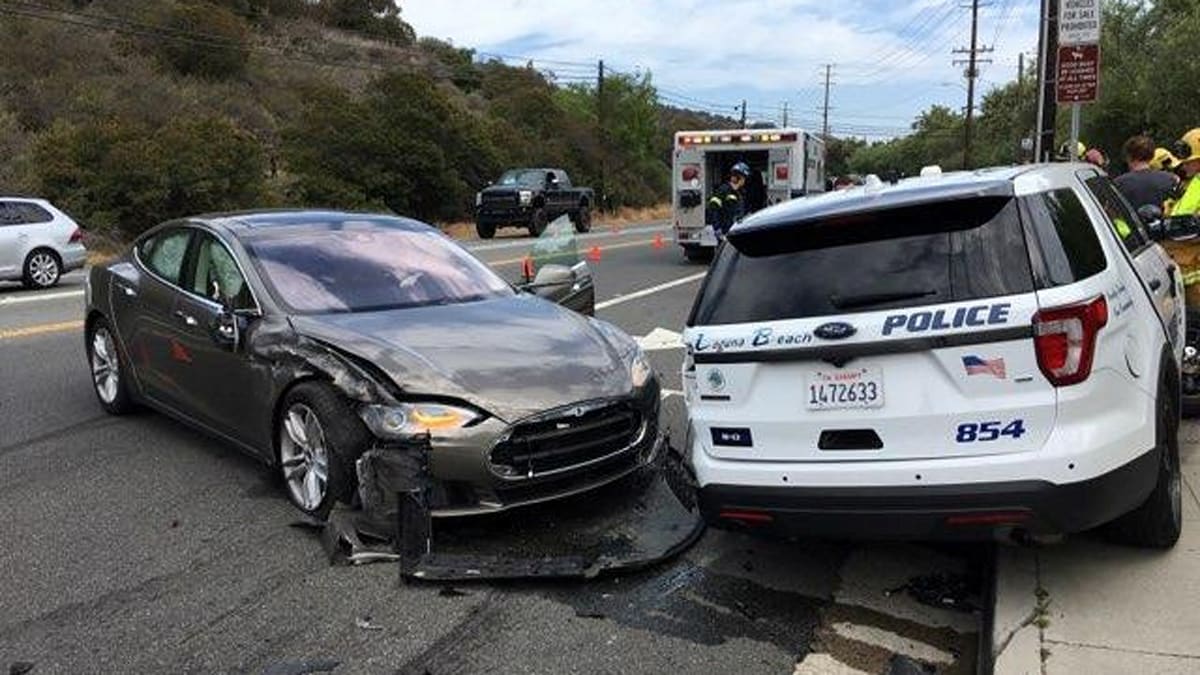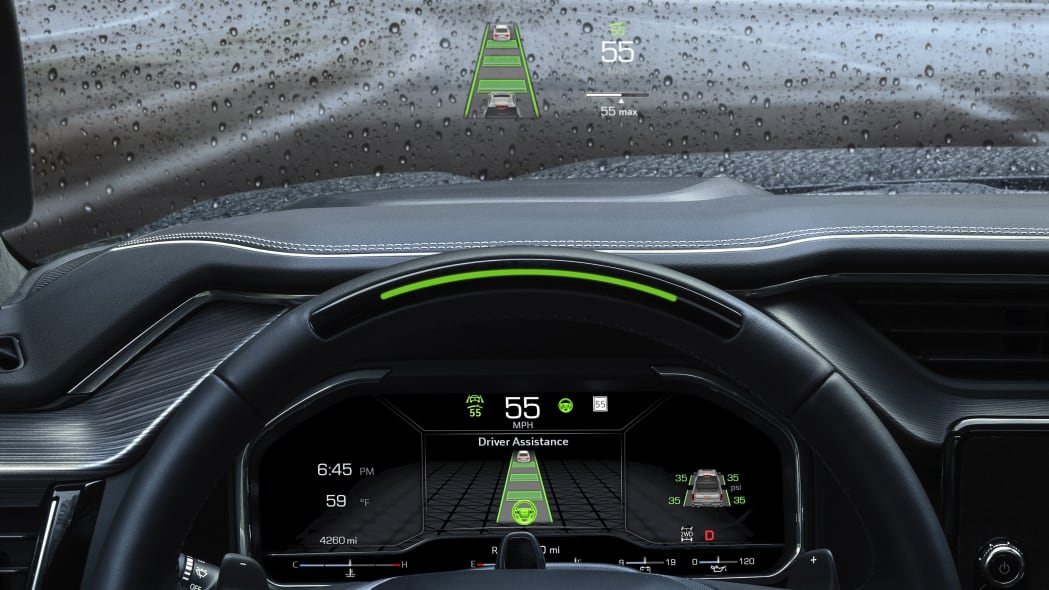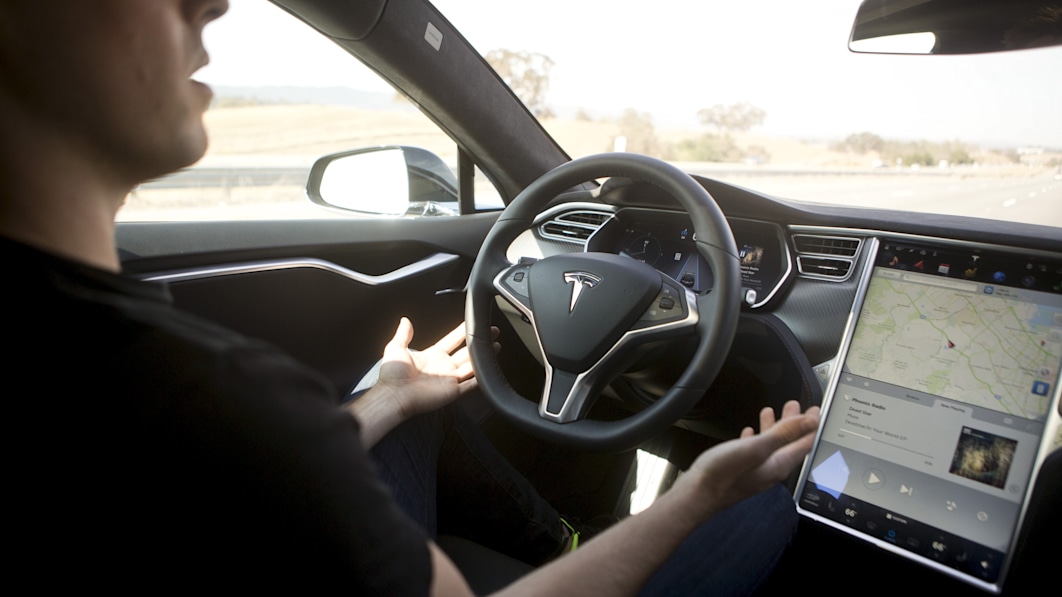Automation is a noble ideal. Every year tens of thousands of Americans die and millions are injured in car accidents, many due to distractions, limitations, and other uniquely human errors. It goes without saying that eliminating the human element from the equation would drastically reduce the number of needless deaths and injuries on American roads, and anyone reading this will surely know at least one person who claims to have been “saved” by some trick of their technically loaded cars.
Every car design innovation that hits the market today seems to make room for something different. New gear selectors free up space in the center console. Voice commands and touchscreens free up steering wheel and dashboard space. Advanced Driver Assistance Systems (ADAS) ostensibly give us fewer things to actively control, effectively freeing our attention. But for what?
The self-driving car is a fantasy that will take a long time to fulfill. Even if we get to the point where self-driving technology is able to largely navigate America’s failing infrastructure, there will be scenarios where it just won’t work. Natural and man-made disasters will take care of that. We’ve seen this week what happens when a major web hosting service has a problem. What happens when the servers responsible for monitoring your rolling nap pod make a huge mess?
Human behavior is the weakest link in car safety. Still, automakers are training their semi-autonomous systems to behave more “organically.” Modern cars that can easily go well above the posted limit on 90% of US highways slow down automatically (and unnecessarily) for soft corners on the highway, for no reason other than the fact that some customers think it “feels right.” We were told one line, but we sold another. It seems odd that an effort is being made to make cars more like they’re human-driven when humans are the weak link to begin with.

The goal of automation may be to save lives, but the ulterior motive is to sell cars. We are fed a fantasy of an interconnected world where cars are so good at doing car things that we don’t have to do anything but sit back in awe of their capabilities, and since we have nothing else to do, we can our car rides are tweeting about how awesome all the features of our favorite brand are. This is a marketer’s dream, not a driver’s utopia.
In the meantime, we are forced to get emergency response technology that largely serves to further erode our already waning situational awareness. If the smartphone has taught us anything, it is the pace at which we become dependent on technology. See how quickly we learned to forget things we once considered critical information in an emergency. Most Americans under 35 probably don’t know the phone numbers of their own loved ones. Do you really think they have any incentive to learn the traffic rules if they’re told their cars can just do it for them?
That knowledge (and the skills and reflexes honed to apply that knowledge on a day-to-day basis) is critical when things go wrong. By systematically dismantling the human component of the driving process, I truly believe we run the risk of literally boring ourselves to death.
I travel often. There are many things you don’t like about flying, but no matter how crappy your seat is, how intrusive your neighbors’ appendages are, how uncomfortably cold (or hot) the stale air is, or how loud the crying baby is, there is always one thing worse than being forced to stay awake for a miserable plane ride, and that is being forced to stay awake for a miserable plane ride with nothing else to do.
We are a culture that begs for constant stimulation. So why are we in such a rush to numb ourselves to everything that happens around us on the road? What’s the real benefit of delegating everything that could potentially require our attention to a half-baked electronic nanny who only further isolates us from information that could be life-or-death critical?

You may not like driving in the strict sense, especially if you’re used to driving long distances in the American Midwest, but at least it gives you a process to engage with. It may not be exciting, but it stimulates our senses and keeps us entertained. Or at least earlier.
I’m not going to sit here and tell you that we’re doomed to an ineffective, device-dependent existence because we’ve walked away from hand crank starters and manual transmissions – I’ve never owned a vehicle with an automatic transmission in my life and even I think that’s ridiculous – but there are clear differences in performance between those who are engaged in a task and those who are merely performing it.
This is why I can get behind a system like GM’s Super Cruise (and similar offerings from other OEMs). Because it’s not pretending it can do the whole job better than a human, its implementation should focus on improving the driving experience rather than trying to completely automate it. You will experience less fatigue per kilometer travelled, but you must still be vigilant enough to prevent the system from disabling. That’s net positive.
And by that same logic, one tech level down, I personally advocate regular cruise control over the new adaptive setups just about any day of the week because it forces you to pay attention. You always know exactly how fast you’re going (provided your cruise control doesn’t suck) and you don’t have to waste mental bandwidth or muscular stamina on minutes of throttle, but you can’t just zoom all the way out or you’ll wake up with a jersey barrier between you. teeth.
People joked (and maybe still do) that a nail screwed into the center of the steering wheel would be a more effective safety feature than any airbag. As ridiculous as that may seem at first glance, there is a grain of truth in it. Driving is a responsibility. No matter how much of it you try to delegate, the money ends up with you. If that’s too much pressure, not even technology can save you.
